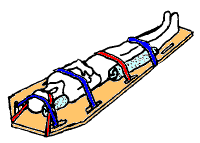So it was my first National Conference. and i LOVED it!
As someone who was interested in FM, and now even more so, I think it was a great way to meet folks with similar questions, ideas for career paths, as well as folks with
different ideas that I didn't think could/would work but clearly can in FM!
The residency fair was amazing, and a bit overwhelming, but since it's FM, everyone was super nice, friendly and supportive of what I was interested in even if it was not what their school offered. As an MS3 going to the residency fair, it was helpful in sorting out which programs I wanted to try to contact for possible sub-i's, and which programs I could spend more time researching. The fair also gave a good idea of what the people are like
at that residency program. The diversity, the mentality, the focus, the
spirit-if you will-of the programs.
Plus one gets to tote home a boatload of goodies: brochures, pens, gadgets, bandaids, stressballs etc and most importantly, contact info!
The workshops are also quite good: useful and applicable even if you are not necessarily interested in FM. I attended the Wilderness Medicine (sponsored by our friends up in Central Maine--they're awesome!!!), Dermatology, Maternal/Childbirth/OB, Applying to Residency workshops. All were helpful in dispelling some myths, providing more ideas, and all in all being useful info to have.
Last thing: Midwest airlines has a hub through Milwaukee. BUT, they serve 2 fresh baked, piping hot chocolate chip cookies on every flight! And the Aladdin hotel (Holiday Inn) rocks the champaigne and the retro-cool and definitely wins in terms of hotels.
Tips for next year (MS4): stay the whole time, bring business cards, CV, personal statement, nicer outfit, and your best smile.







